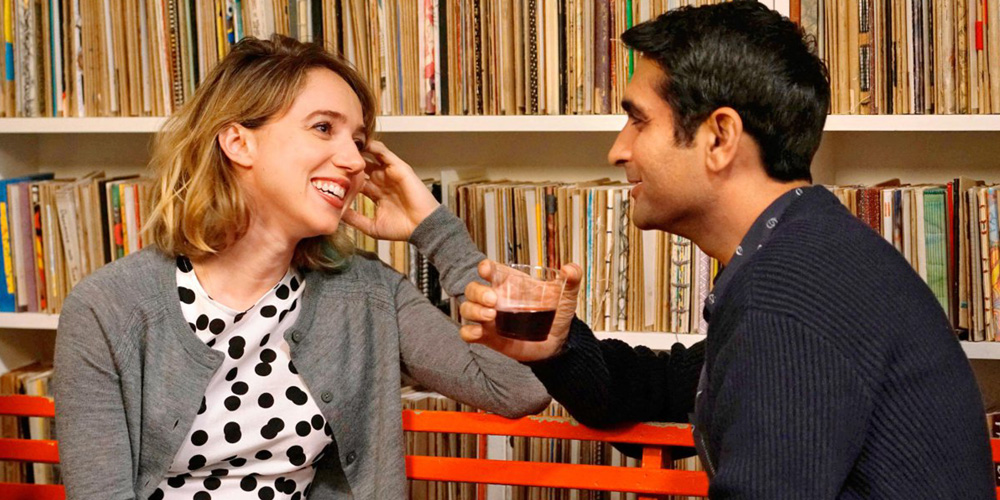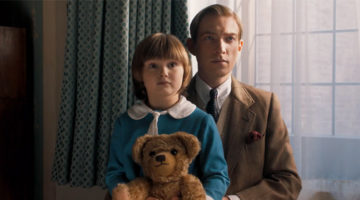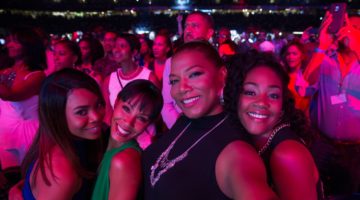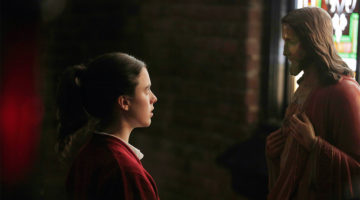Review: The Big Sick
Layered and full of nuance, The Big Sick is a fun and fearless love story that might be the summer’s best film.
The Big Sick is based on the true love story of Kumail Nanjiani and writer/producer Emily V. Gordon, who have been married for over a decade and spent the last few years writing the script for this film, which details the beginnings of a very unique, and more than a little harrowing, courtship.
In the film, Kumail (Nanjiani playing himself) and Emily (Zoe Kazan) meet at a comedy club after Emily lets out a loud “woo-hoo” mid-set. Kumail approaches her once offstage to dispel misconceptions around heckling, explaining he firmly believes that even the most positive outbursts are disruptive. This half-flirtatious exchange results in a casual, but meaningful relationship, filled with easy banter and a mutual unwillingness to admit the seriousness of their feelings.
Not long after falling into a rhythm, Emily discovers Kumail has kept their relationship entirely secret from his family. All the while, Kumail’s parents (Anupam Kher and Zenobia Shroff) regularly introduce him to women from the Pakistani community. Though Kumail is thoroughly uninterested in an arranged marriage, he knows the risk of telling his parents about the white girl he’s fallen in love with. Arranged marriage worked for his parents and his brother, and as Kumail points out, arranged marriage is just called marriage in Pakistan. Emily, ill-equipped to understand Kumail’s family dynamic and burgeoning identity crisis, decides Kumail’s emotional aloofness and efforts to compartmentalize their relationship just won’t cut it. Following a heated argument – one of the most resonant scenes in the film – they break up.
Soon after though, Emily falls ill, and is placed in medically induced coma with a mysterious internal infection. Kumail is called to the hospital by a friend and feels compelled to stay despite the break-up. Perhaps when you sign someone into a coma, the stakes keep you emotionally invested. In any case, Emily’s parents arrive and like many white parents, know all about Kumail and Emily’s relationship. Her father, Terry (Ray Romano) and mother Beth (Holly Hunter) are forced into a strange and compelling relationship with their daughter’s ex. Terry is sheepish and vulnerable but also hilariously relatable (“That’s why I don’t go on the internet. You go there and people hate Forrest Gump”) and Beth is a fierce, protective, no-nonsense straight talker. For much of the film, while Emily’s situation grows increasingly dire, the film focuses on the evolution of these characters in the face of trying circumstances.
The entire cast is stellar and the actors are awarded ample space to give layered performances, especially Ray Romano, the unexpected standout. He steals what feels like scene after scene, including one particular aside involving Terry and a tuna sandwich. Kumail’s parents aren’t quite given the same attention, but serve as another instance of this film incorporating a variety of honest, thoughtful perspectives. It is fair to point out that for all the subtle humanizing and normalizing the film takes on, the white love interest fares far better than the young women of colour depicted on screen, who are mostly focused on marriage or used as a punchline, and whose perspectives are largely absent.
The film purposefully avoids being political and is charmingly small-scale but will inevitably be seen as a political film due to the main character’s skin colour and background. With so much happening, the script still finds space to present Kumail’s background and his family’s cultural and religious identity in considerate, but still rightfully complicated, way. Nanjiani and Williams are unafraid to admit life is messy and uncertain and the script prefers to pose and work through some big questions around identity and cultural incongruence, rather than claim to have the answers. Especially since The Big Sick tells a real-life story, it’s unfair to expect this single project to carry the burden of representing an entire people or rewriting decades of white-centric storytelling.
It’s also a discredit to The Big Sick to discuss the film in only in the context of the rom-com genre. The script and the characters and their perspectives have such depth that the discussion should be less about breathing new life into a supposedly tired genre (we get great rom-coms every year, people – relax) and more about appreciating a film that transcends genre and has more on its mind than the usual, oft-bemoaned rom-com fare.
Yes, the film is a bit too long and perhaps overly good-natured, but real-life Emily and Kumail have found a way to tell their story, full of complex themes and relationships, with an earnestness and ease that makes The Big Sick one of the best movies of the year.





